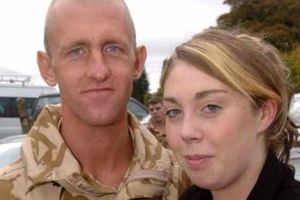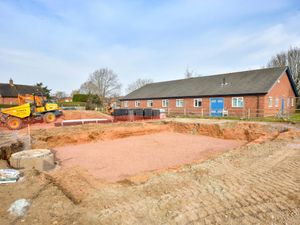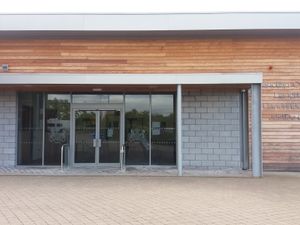Baby anguish of Shropshire war widow
A Shropshire war widow whose husband was killed fighting in Afghanistan is considering legal action against hospital staff after their baby daughter died a day after being born. A Shropshire war widow whose husband was killed fighting in Afghanistan is considering legal action against hospital staff after their baby daughter died a day after being born. Carley McKee and her husband Lance Corporal Stephen McKee were left heartbroken when daughter Keeley died on March 21 last year less than 31 hours after being born at the Royal Shrewsbury Hospital. Following the birth, the couple raised concerns with hospital staff over their daughter's grey colour, grunting noises and limp limbs. Medics reassured the couple there was nothing to be concerned about and baby and mother were sent home. But hours later, the couple became more concerned and minutes into the journey back to hospital baby Keeley stopped breathing. [24link]

A Shropshire war widow whose husband was killed fighting in Afghanistan is considering legal action against hospital staff after their baby daughter died a day after being born.
Carley McKee and her husband Lance Corporal Stephen McKee were left heartbroken when daughter Keeley died on March 21 last year less than 31 hours after being born at the Royal Shrewsbury Hospital.
Following the birth, the couple raised concerns with hospital staff over their daughter's grey colour, grunting noises and limp limbs.
Medics reassured the couple there was nothing to be concerned about and baby and mother were sent home.
But hours later, the couple became more concerned and minutes into the journey back to hospital baby Keeley stopped breathing.
On arrival at hospital, medical staff spent 33 minutes trying to resuscitate Keeley but she was declared dead shortly before 6pm.
Yesterday, Mid and North Shropshire coroner, Mr John Ellery recorded a narrative verdict at an inquest in Wem.
He said Keeley had died of a "rare infection which can be difficult to identify".
But added: "Had it been spotted then maybe Keeley would have survived."
Keeley's father was a member of the 1st Battalion, The Royal Irish Regiment, and was killed in action on March 9 this year.
But in a statement written before his death, Lance Corporal McKee said: "The staff had seen it (her skin co-lour) and had no real conce-rns. At about midday the mi- dwife came around and said everything was normal."
A letter from neo-natal consultant Bob Welch to the family said: "Keeley's post mortem showed evidence of a pneumonia probably acq-uired during delivery. It's rare, difficult to spot in the early stages, but if they are there is a good chance the baby will survive."
But midwife Katherine Rodenhurst told the inquest she did not believe Keeley needed to be hospitalised.
Mrs McKee said she was in talks with solicitors about taking possible action against the hospital.
Cathy Smith, for the hospital trust, said: "This was a rare and tragic case and our deepest sympathies are with Mrs McKee. We would like to offer to meet with Mrs McKee to discuss any concerns she may have."
By Paul Mannion





